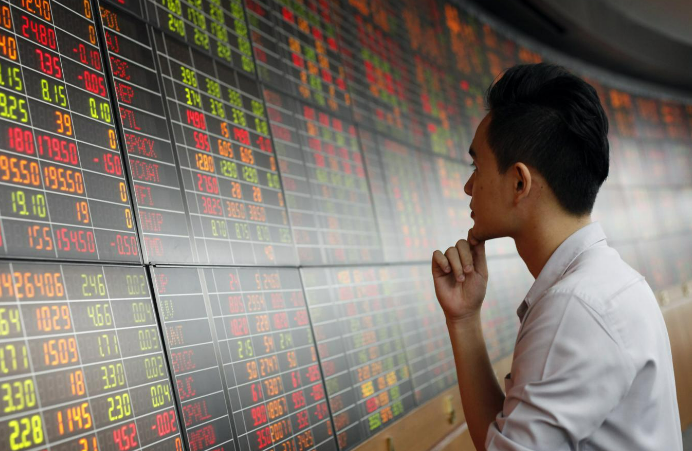Asian stock markets calm on Monday, and the US dollar remains stable
On Monday, Asian stock markets began trading this week on a calm tone, with the US dollar remaining stable and investors pondering when the Federal Reserve will start cutting interest rates after releasing another eye-catching employment report.

On Monday, Asian stock markets began trading this week on a calm tone, with the US dollar remaining stable and investors pondering when the Federal Reserve will start cutting interest rates after releasing another eye-catching employment report.
As Israel withdraws more troops from southern Gaza, tensions in the Middle East tend to calm, with oil prices falling by more than 1% and gold prices continuing to reach historic highs. The Morgan Stanley Capital International's most widely used Asia Pacific stock index outside of Japan rose 0.17%, while the Nikkei Index rose 0.78%.
The European stock market seems to be struggling to rise, with European Stoxx 50 futures up 0.04%, German DAX futures up 0.05%, and FTSE index futures up 0.10%.
The data released on Friday showed that the employment growth in the United States in March was higher than expected, and wages steadily increased, indicating a relatively stable economic foundation in the first quarter.
The strategist at ANZ Bank wrote in a report, "Elastic economic data is a double-edged sword for the market. On the positive side, strong growth signals that the economy is moving away from recession, but it may also mean that the Federal Reserve will maintain higher interest rates for a longer period of time."
According to the Chicago Mercantile Exchange's FedWatch tool, the market currently believes that the likelihood of the Federal Reserve cutting interest rates in June is 48%, lower than over 60% a week ago, and July is expected to become a new starting point for the highly anticipated easing cycle. Investors also expect to cut interest rates by 62 basis points this year, lower than the Federal Reserve's forecast of 75 basis points.
This week, investors will pay attention to the US Consumer Price Index (CPI) report, which is expected to show that the core inflation rate in March has dropped from 3.8% last month to 3.7%.
Vasu Menon, Managing Director of Investment Strategy at OCBC Singapore, stated that if inflation data shows a downward trend in the next two months, the Federal Reserve may still consider lowering interest rates in June. "But if the sticky and slow anti inflation trend in January and February continues, it may need to be reconsidered."
Meanwhile, the Chinese Mainland stock market reopened after the holiday, and the blue chip index fell 0.45%. The Hang Seng Index in Hong Kong rose 0.33%.
The change in the US interest rate view has raised the yield of US treasury bond. The yield of two-year treasury bond, which is usually in line with the interest rate forecast, rose 4.8 basis points to 4.780%, the highest level in more than four months. The yield of 10-year treasury bond rose 4.6 basis points to 4.424%.
The US dollar was supported by the rising yield of treasury bond bonds. The euro fell 0.04% to US $1.0831. The British pound closed at US $1.2627, down 0.07% on the day.
The Japanese yen fell 0.11% against the US dollar to 151.77 as traders prepared to accept possible intervention from the Japanese authorities. Nicholas Chia, Asia macro strategist at Standard Chartered Bank, believes that the Japanese yen will be more sensitive to a substantial strong US CPI report, and "prophecy theory may come back on the agenda."
The US dollar index that compares the US dollar with the six major currencies is 104.34.
The European Central Bank will hold a meeting later this week, and it is widely expected that interest rates will remain unchanged. Investors expect that interest rate cuts are unlikely on April 11th, but have fully considered the rate hike in June and will raise interest rates two or three more times later this year.
Spot gold rose 0.6% to $2343.49 per ounce, surpassing a historic high last week.
On that day, US crude oil fell 1.51% to $85.60 per barrel, while Brent crude oil fell 1.56% to $89.75.
Disclaimer: The views in this article are from the original Creator and do not represent the views or position of Hawk Insight. The content of the article is for reference, communication and learning only, and does not constitute investment advice. If it involves copyright issues, please contact us for deletion.